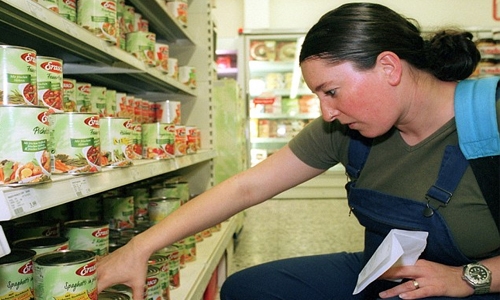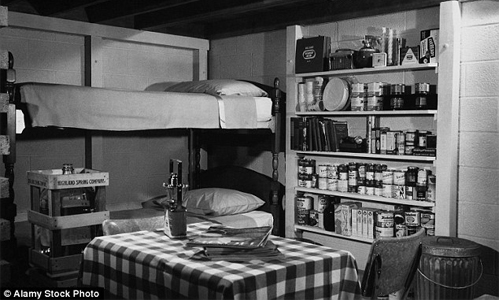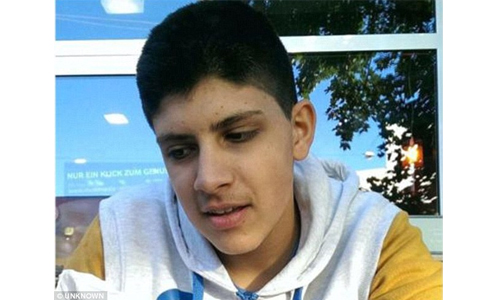Germans will be asked to stock pile food, water, money and medicine for the first time since the Cold War to help prepare for an armed attack
For the first time since the end of the Cold War, the German government plans to tell citizens to stockpile food and water in case of an attack or catastrophe, it has been reported.
The new Civil Defence Plan comes as Germany is currently on high alert after two Islamist attacks and a shooting rampage by a mentally unstable teenager in Munich this year.
The plan, which makes civilian backing of troops a priority while boosting the resilience of buildings and increasing capacity in the healthcare system, is due to be adopted by the government on Wednesday.
People would be required to stockpile enough drinking water to last for five days under the plan, according to the Frankfurter Allgemeine Zeitung daily newspaper.
'The population will be obliged to hold an individual supply of food for ten days,' the newspaper quoted the government's 'Concept for Civil Defence' as saying.
However, citizens would also require a sufficient supply of energy, money and medicine to wait out a period until the state would be able to initiate a response to a catastrophe or attack, according to German broadcaster Deutsche Welle.
Berlin announced measures earlier this month to spend considerably more on its police and security forces and to create a special unit to counter cyber crime and terrorism.
The Frankfurter paper said a parliamentary committee had originally commissioned the civil defence strategy in 2012.
A spokesman for the Interior Ministry, which is preparing the strategy, said the plan would be discussed by the cabinet on Wednesday and presented by the minister that afternoon.
He declined to give any details on the content.
The 69-page report does not see an attack on Germany's territory, which would require a conventional style of national defence, as likely.
However, the precautionary measures demand that people 'prepare appropriately for a development that could threaten our existence and cannot be categorically ruled out in the future,' the paper cited the report as saying.
It also mentions the necessity of a reliable alarm system, better structural protection of buildings and more capacity in the health system, the paper said.
A further priority should be more support of the armed forces by civilians, it added.
The plan is Germany's first civil defence strategy since the end of the Cold War when the country found itself at the centre of tensions between the superpowers of the US and the USSR following the end of World War II.
The Berlin Wall divided the country into east and west before it eventually fell in 1989 during as several decades of communism in the USSR ended.
During the Cold War period, the country suffered food shortages while citizens were forced to live in harsh conditions.
Haunted by its Nazi past, Europe's most populous country has for decades been particularly cautious about defence issues.
This year Germany set out a new military road map outlining Germany's ambition to assume a bigger defence role abroad, within the frameworks of NATO and the European Union.
But a string of attacks at home in July - including two claimed by the Islamic State group - has also sparked a fierce debate about internal security.
In one attack in which ISIS claimed responsibility, Riaz Khan Ahmadzai, 17, attacked tourists from Hong Kong while traveling on a commuter train near the Bavarian town of Wuerzburg on July 18, wounding four on board and a local German dog walker outside as he fled.
Germany's Defence Minister said earlier this month the country lay in the 'crosshairs of terrorism' and pressed for plans for the military to train more closely with police in preparing for potential large-scale militant attacks.
On July 22, another attack occurred at a Munich shopping mall when teen Ali Sonboly shot nine people and then killed himself.
The defence ministry is looking at training the military to respond to major terror assaults.
Interior Minister Thomas de Maiziere last week announced tough new anti-terror measures including a controversial proposal to strip jihadist fighters of their German nationality.
Related Posts




